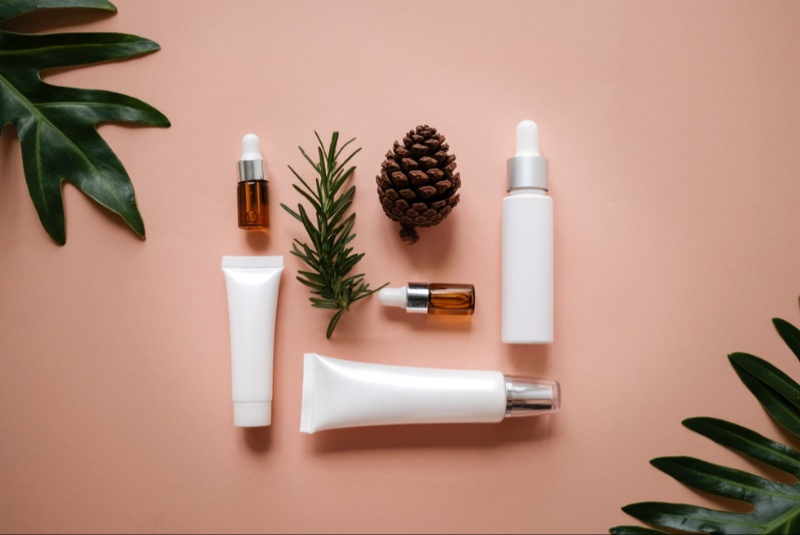In the ever-evolving landscape of skincare, navigating the aisles filled with an array of products touting remarkable benefits can be a daunting task. Understanding how to sift through the noise to find the gems that will truly nurture and protect your skin is vital. Here, we provide you with a comprehensive guide to making informed choices when buying skincare products.
Understanding Your Skin Type
Every individual has a unique skin type that can be generally classified into one of five categories: normal, oily, dry, combination, or sensitive. Recognizing your skin type is the first step in selecting products that will harmonize with your skin’s natural tendencies. For instance, oil-free moisturizers can be beneficial for oily skin, while creamier formulations might be better suited for dry skin.
Understanding your skin type involves observing how your skin behaves under different circumstances. Take note of how your skin feels throughout the day, whether it tends to become oily, dry, or remains relatively balanced. Factors such as genetics, climate, and age can also influence your skin type.
Here's a brief overview of the five common skin types:
- Normal: Normal skin is well-balanced, neither too oily nor too dry. It typically has a smooth texture and minimal sensitivity. People with normal skin often enjoy a wide range of skincare product options.
- Oily: Oily skin tends to produce excess sebum, leading to a shiny complexion and enlarged pores. Individuals with oily skin are more prone to acne and may benefit from products that control oil production without over-drying.
- Dry: Dry skin lacks sufficient moisture and can feel tight, flaky, or rough. It may be more prone to fine lines and wrinkles. Hydrating products with emollients and humectants are essential for those with dry skin.
- Combination: Combination skin exhibits characteristics of more than one skin type. It is common to have an oily T-zone (forehead, nose, and chin) and drier cheeks. Tailoring your skincare routine to address both aspects of combination skin is crucial.
- Sensitive: Sensitive skin is prone to redness, irritation, and discomfort. It can react adversely to certain ingredients and environmental factors. Individuals with sensitive skin should opt for gentle, fragrance-free products.
Once you've identified your skin type, you can make more informed choices when selecting skincare products tailored to your specific needs.
Decoding Ingredient Lists
Skincare products are formulated with a medley of ingredients, each serving a distinct purpose. Understanding the ingredients listed on product labels empowers you to make informed choices and select products that align with your skin's requirements. The Food and Drug Administration (FDA) mandates that skincare product ingredients be listed in decreasing order of concentration. Therefore, the ingredients at the beginning of the list have higher concentrations in the product.
To make the most of this information, familiarize yourself with common skincare ingredients and their benefits:
- Hyaluronic Acid: Renowned for its hydrating properties, hyaluronic acid can attract and retain moisture, helping to keep the skin plump and hydrated.
- Retinoids: Known for their anti-aging benefits, retinoids, such as retinol and retinaldehyde, can improve skin texture, reduce the appearance of fine lines and wrinkles, and promote collagen production.
- Peptides: Peptides are small proteins that support collagen production, helping to maintain the skin's firmness and elasticity. They are often found in anti-aging products.
- Niacinamide: A form of vitamin B3, niacinamide can improve skin texture and tone, reduce redness, and help control oil production. It is a versatile ingredient suitable for various skin types.
- Alpha Hydroxy Acids (AHAs): AHAs like glycolic acid and lactic acid are exfoliating agents that remove dead skin cells, promoting a smoother and more radiant complexion. They can be particularly beneficial for those with dry or dull skin.
- Beta Hydroxy Acid (BHA): Salicylic acid is a common BHA that is excellent for treating acne-prone skin. It can penetrate the pores, exfoliate the inside walls, and reduce acne lesions.
- Vitamin C: Vitamin C is an antioxidant that brightens the skin, fades hyperpigmentation, and protects against free radical damage. It is often included in serums and moisturizers.
- Antioxidants: Antioxidants like green tea extract, vitamin E, and resveratrol help protect the skin from environmental damage and premature aging.
By becoming familiar with these ingredients and their benefits, you can better assess the suitability of a product for your skin type and specific concerns.

Sensitivity and Allergies
If you have sensitive skin or known allergies, it is imperative to scrutinize the ingredient lists meticulously to avoid potential irritants. Common irritants can include artificial fragrances, parabens, and sulfates. Opting for fragrance-free and hypoallergenic products can reduce the risk of adverse reactions.
Research Brands and Certifications
In recent years, consumers have grown increasingly conscious about the ethical practices of the brands they support. Beyond product formulations, brand values, sustainability, and ethical considerations have gained prominence. While researching brands, consider the following aspects:
Cruelty-free: Look for brands that develop products without animal testing. Cruelty-free certifications, such as Leaping Bunny or PETA's "Beauty Without Bunnies," signify a commitment to animal welfare.
Sustainable: Brands that prioritize environmentally friendly practices contribute to reducing the ecological footprint of the skincare industry. Look for brands that emphasize sustainability in their sourcing, packaging, and manufacturing processes.
Certifications: Some products bear certifications like Ecocert or COSMOS, which signify that the product meets specific organic and ecological standards. These certifications can provide reassurance regarding a product's quality and ethical standards.
Product Reviews and Recommendations
Personal recommendations from friends, family, or online reviews can be invaluable sources of information when buying skincare products. Hearing about others' experiences with specific products can offer insights into their efficacy and suitability for your skin concerns. However, it's essential to approach reviews critically, distinguishing between genuine feedback and possibly sponsored or biased content.
Sampling and Patch Testing
Before committing to a full-sized product, if possible, obtain samples or travel-sized versions to patch test on your skin. Patch testing involves applying a small amount of the product to a discreet area of your skin, such as the inside of your wrist or behind your ear. This approach can help you gauge how your skin reacts to the product over a period, minimizing the risk of a full-face adverse reaction.
Understanding Marketing Hype
Skincare brands often resort to embellished marketing language to promote their products. Be aware of buzzwords like "miracle cure" or "instant results," as skincare typically involves a gradual process with results manifesting over time. Be cautious of products that promise overnight transformations and opt for products backed by scientific research and clinical trials.
Seeking Professional Advice
If you find yourself lost in the labyrinth of skincare products, seeking advice from dermatologists or licensed estheticians can be a prudent step. These skincare professionals have in-depth knowledge of various skin conditions and can help tailor a skincare routine that meets your specific needs and concerns. They can recommend prescription-strength treatments when necessary and provide guidance on product selection.
Budget Considerations
Skincare doesn't have to be exorbitantly priced to be effective. Several affordable brands offer products with efficacious formulations. Balancing your budget while making informed choices is essential. Some ingredients, such as hyaluronic acid and niacinamide, are available in products across a wide price range. Assess your skincare priorities and allocate your budget accordingly.
Experiment and Learn
Remember that skincare is a deeply personal journey. What works for one person might not work for another. It is a process of trial and error, where learning and adapting is key. As you explore different products and ingredients, pay attention to how your skin responds. Take note of any improvements or adverse reactions to refine your skincare routine further.
Keeping an Eye on the Expiry Date
Skincare products come with a shelf life, post which their efficacy diminishes. Be vigilant about using products within their shelf life to ensure that you reap the intended benefits. Additionally, consider storing your products in a cool, dark place to extend their longevity.
In the dynamic world of skincare, making informed choices is your pathway to achieving healthy, radiant skin. As you stand before shelves brimming with options, arm yourself with knowledge and awareness. Understand your skin type, decipher ingredient lists, and embark on a journey of nurturing your skin with the choices that resonate with your skin’s unique narrative. Remember that skincare is not about chasing perfection but embracing and caring for your natural self, with a regimen that is thoughtful, informed, and kind to your skin. By following this comprehensive guide, you can confidently navigate the complexities of buying skincare products and make choices that support your skin's health and vitality.




